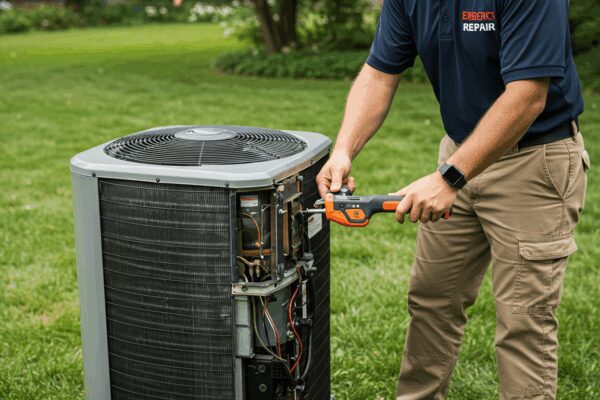So, you’re a retailer or wholesaler eyeing the Russian market—maybe you’re dreaming of stocking shelves with electronics, clothing, or household goods in Moscow or St. Petersburg. Russia’s a land of opportunity, but there’s a gatekeeper you need to charm: GOST R certification. It’s not just a bureaucratic hoop; it’s your ticket to proving your products are safe, reliable, and ready for Russian consumers. Feeling a bit lost in the Cyrillic maze? No worries. Let’s unpack what GOST R certification is, why it’s your key to success, and how you can navigate it like a seasoned pro.
What’s GOST R Certification, Anyway?
GOST R stands for Gosudarstvenny Standart Rossii—Russian for “State Standard of Russia.” It’s a quality certification system that ensures products meet Russia’s safety and performance standards. Think of it as a seal of approval from the Russian government, required for a wide range of goods—from toys to appliances—before they can be sold or imported. Governed by Rosstandart, Russia’s standardization agency, GOST R applies to both domestic and foreign products.
Why should you care? Without GOST R, your goods are stuck at customs or banned from stores. More than that, it’s about trust. Russian consumers look for that GOST R mark to know they’re buying something safe and legit. It’s like a handshake that says, “You can count on us.” Doesn’t that feel like a goal worth chasing?
The Heart of It: Building Trust in a New Market
Let’s get personal for a second. Selling in Russia isn’t just about moving products—it’s about connecting with people. Whether it’s a parent buying a stroller or a homeowner picking out a blender, your customers want to feel confident. A GOST R certificate shows you’ve gone the extra mile to meet Russia’s standards, which aren’t always the same as the EU’s or U.S.’s. It’s like learning a few Russian phrases before a trip—it shows you respect the culture and care about fitting in. Who wouldn’t want to make that impression?
What’s Covered by GOST R? The Nuts and Bolts
GOST R certification is all about proving your product is safe, functional, and compliant. It varies by product type, but here’s the gist:
Safety Standards: Ensure your product won’t harm users—think electrical safety for gadgets or chemical safety for cosmetics.
Performance Testing: Verify your product does what it claims, like a vacuum that actually sucks up dirt.
Labeling Requirements: Labels must be in Russian, with clear instructions, warnings, and manufacturer details.
Documentation: Provide technical specs, test reports, and proof of compliance.
Factory Audits: Some products require a check of your production site to confirm consistent quality.
It’s like preparing for a big exam—study the material, show your work, and make sure your answers are clear. Skip a step, and you’re risking a failing grade.
A Quick Detour: The Cost of Ignoring GOST R
I once heard about a European retailer who tried to bypass GOST R to get their electronics into Russia faster. Their shipment got held at customs, racking up storage fees and delaying their launch by months. Worse, they lost credibility with local partners. GOST R isn’t just a formality; it’s a non-negotiable. Working with certification bodies like Rostest or SGS can save you from those headaches. It’s like hiring a guide for a tricky hike—you’ll get to the summit faster.
Who Needs GOST R? It’s Not Just for Manufacturers
You might think GOST R is only for the folks making the products, but as a retailer or wholesaler, you’re on the hook too. If you’re importing goods into Russia or selling them there, you need to ensure they’re GOST R certified. This applies to a huge range of products—electronics, textiles, furniture, even some food items. Some products, like medical devices, might need other certifications (like EAC), but GOST R covers most consumer goods.
Here’s the thing: you don’t have to do it alone. Manufacturers often handle the certification, but you’ll need to verify their documents or work with a certification agency if they haven’t. It’s like being the middleman in a deal—make sure everyone’s got their paperwork straight.
Your GOST R Playbook: Step-by-Step
Let’s say you’re a wholesaler bringing in a line of kitchen appliances—blenders, toasters, the works.
Here’s how you’d get GOST R certified:
Step
What to Do
Why It Matters
Identify Requirements
Check which GOST R standards apply to your appliances (e.g., electrical safety).
Ensures you’re targeting the right rules.
Gather Documents
Collect technical specs, safety data, and manufacturer details.
Proves your product’s compliance.
Test Products
Send samples to an accredited lab for safety and performance tests.
Verifies your product meets standards.
Translate Labels
Ensure packaging and manuals are in Russian with clear instructions.
Meets Russian labeling laws.
Work with an Agency
Partner with a certification body like Rostest or Bureau Veritas.
Streamlines the certification process.
Submit Application
File your documents and test results for approval.
Final step to get your GOST R certificate.
This table’s your roadmap. Stick to it, and you’re on your way to Russian shelves.
Choosing the Right Partner: Certification Made Easier
Navigating GOST R can feel like deciphering a foreign script, so picking the right certification partner is key. Here’s what to prioritize:
Local Expertise: Choose agencies familiar with Russia’s regulatory quirks—Rostest is a go-to for many.
Product Knowledge: Ensure they understand your goods, whether it’s electronics or apparel.
Support Services: Some agencies offer translation, testing, and customs help.
Reputation: A trusted partner smooths the way with Russian authorities.
If you’re new to Russia, agencies like CCIS-Expertise or GOST Russia can guide you through the maze. Many offer free consultations, so you can start without committing.
The Certification Process: What to Expect
Getting GOST R certified is like preparing for a big event. You’ll start by gathering your product’s technical docs—think schematics, safety data, and user manuals. Next, you’ll send samples to an accredited lab for testing, which might check for things like electrical safety or material durability. Your certification agency will review everything, possibly auditing your supplier’s factory. Finally, you’ll get your certificate, valid for one to three years depending on the product.
The process can take weeks or months, especially if translations or retests are needed. But once you’ve got that GOST R mark, you’re cleared to sell. It’s like getting your visa stamped—suddenly, the doors swing open.
Tackling the Tough Stuff: It’s Not All Smooth Sailing
Let’s be real—GOST R certification can be a slog. The paperwork is relentless, Russian regulations are strict, and language barriers can slow you down. Small retailers or wholesalers might feel like they’re climbing a mountain. I’ve seen businesses get tripped up by incomplete docs or mislabeled products, delaying their market entry.
But here’s the good news: help is out there. Certification agencies can handle translations and paperwork. Resources like Rosstandart’s website or trade groups like the Russian Union of Industrialists and Entrepreneurs offer guidance. Take it one step at a time, and don’t rush—haste leads to mistakes. It’s like cooking a new dish—follow the recipe, and you’ll get it right.
Beyond Certification: Why It Matters
GOST R certification isn’t just about clearing customs; it’s about building a foothold in Russia. Certified products stand out in a competitive market, earning trust from consumers and partners alike. Plus, the process sharpens your operation—better documentation, tighter quality control, smoother supply chains. I know a wholesaler who used GOST R to streamline their import process, cutting delays and boosting profits. It’s like tuning a guitar—everything sounds better afterward.
A Seasonal Spin: Timing Your Move
Spring 2025 is a smart time to start. With Russia’s summer shopping season approaching—think back-to-school supplies or outdoor gear—GOST R certification positions you for the rush. And with eco-friendly products trending, certified sustainable goods could catch eyes in Russian stores. Why not ride that wave?
Wrapping Up: Your Next Step
Ready to break into Russia? Start by checking Rosstandart’s website for GOST R standards specific to your products. Connect with a certification agency like Rostest, SGS, or CCIS-Expertise to map out your path. Trade groups or webinars from the Russian Chamber of Commerce can offer free insights to get you started. If you’re new to this, an agency’s expertise is like a GPS for navigating the process.
GOST R certification might feel like a hurdle, but it’s your bridge to Russia’s 140 million consumers. You’re not just meeting standards; you’re building trust, opening doors, and growing your business. So, grab a coffee, jot down your plan, and let’s get those products ready for Russian shelves.





Leave a Reply
You must be logged in to post a comment.